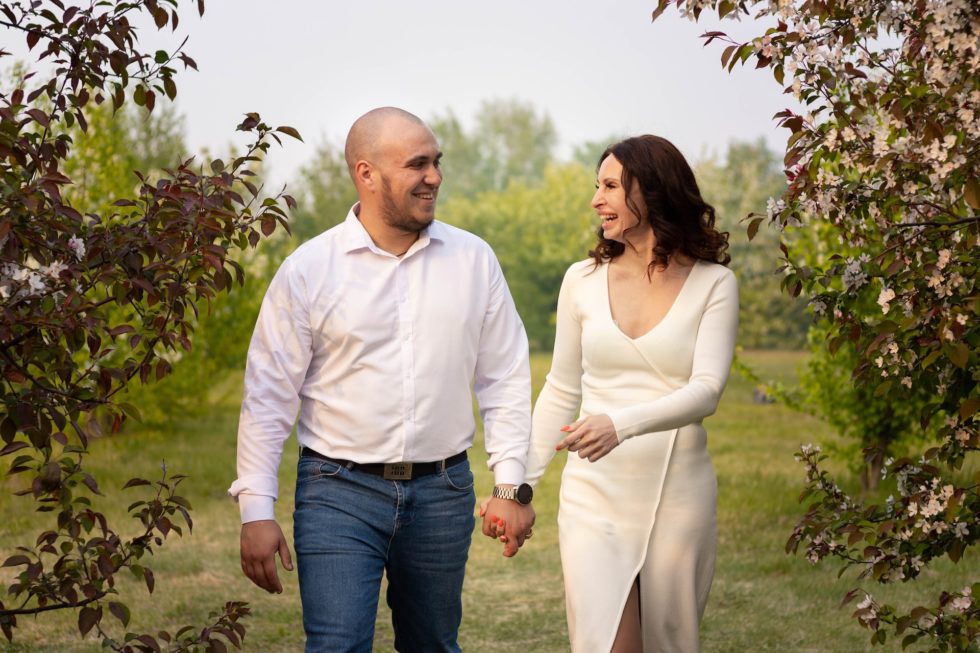The age gap relationship used to be a rarity. The spectacle of an older man with a younger wife, or a younger man with an older female partner, was one that raised eyebrows and drew dissapproval in polite society. In the modern world such a pairing has become much more commonplace and well-known thanks to the media, and even more approved of by the general public.
Due to the high visibility of movie stars and celebrities who have made no secret of their older or younger mates, most people can name at least one or two high-profile couples with an age gap. Many of us also have someone in our immediate family or close circle of friends that qualifies as an age gap couple. And in this age of connections via technology, there are web sites and support groups devoted to people in these relationships or who are considering entering into one. But what is an age gap relationship, what does it take to make it last, and when is the difference in ages too big for a successful relationship?
Breaking Down The Numbers
While there is no definition written in stone, a general rule is that there is an age gap if the difference in ages between the partners is greater than 5 years. It is of course, a matter of degree after that, and the larger the gap the more difficult it is for most of us to accept the relationship as natural or normal.
A 40 year gap between a man and a woman is generally dissaproved of, while a 20 year gap is barely acceptable. And the actual age matters as well – witness the discomfort the public felt and expressed with Anna Nicole-Smith’s marriage to her quite elderly husband. On the other end of the age gap, Jerry Lee Lewis is famous for having married his 13 year-old cousin, a situation which had so many things wrong with it that it’s probably not a fair example. But men have chosen women that are obviously too young to know what they are getting into, and the public scorn is usually strongly expressed in these cases.
So, it’s fair to say that a generally-accepted age gap couple will have the youngest partner no younger than 18, and an age difference no larger than 20 years. Mileage may vary, as they say, and there is no hard and fast rule.
Principles Of Success
But there are some basic principles for success that are agreed upon by those involved in or contemplating such a coupling. The maturity level of each person is very important, and it is usually the younger one that must have reached an adult level. Women usually have the advantage in this area, since they mature faster than men. So an older man can feel that he and his younger wife are equally mature without straining credibility, while the reverse may not work – younger men are notoriously immature.
Having shared interests is vital to any relationship, but more so to the age gap couple. One example is an interest in sports and physical activities. If there is a mismatch here for a couple close in age, it can usually be handled with some compromise and willingness to try something new. But for an age gap couple, it usually isn’t feasible for the younger woman to be an avid skier and swimmer while the older man is a stay-at-home couch potato type – the lack of shared interests and the lack of an ability to change are too much to overcome.
Cultural knowledge and reference points such as music and movies can be a problem, unless the couple share an interest in a certain period. All in all, shared interests indicate a healthy relationship for any couple, but are especially important for the age gap couple.
Life Experiences Count
Along with shared interests, the number and variety of major life experiences each partner has had are important. No one has the same degree or type of experience, but the younger half of an age gap couple can be at a disadvantage if he or she has not had at least some of the major life passage experiences that the older half has had – marriage, divorce, death of a close friend or family member, education, work, and so on. These are the things that determine and build character, and there can be no successful relationship without a correspondence to a degree of levels of experience.
Finally, personality is a deciding factor in the success of an age gap couple, given that other factors are equal. An extrovert and an introvert may make adjustments to meet in the middle if they are close in age, but the larger the gap, the harder it is to cancel out major personality differences. The older person is naturally less flexible and able to overlook such differences, while the younger one will perhaps be willing and able, but will resent having to repress personality characteristics or chnage them in the long run.
In The End It’s Happiness That Counts, Right?
So, it is really not possible to answer the question posed with a definitive number – we can’t say that a 20 year or less gap guarantees success while a bigger age gap is a predictor of failure. But it is possible to say that if major problems in any of these important factors are ignored, the couple will not survive, no matter what the age gap is. If you are involved in an age gap situation, you’ll have to consider all of the factors discussed an decide for yourself if your chances are good. But remember that as long as both partners in such a relationship are happy and can honestly say that they are content, the age gap is not too big.






